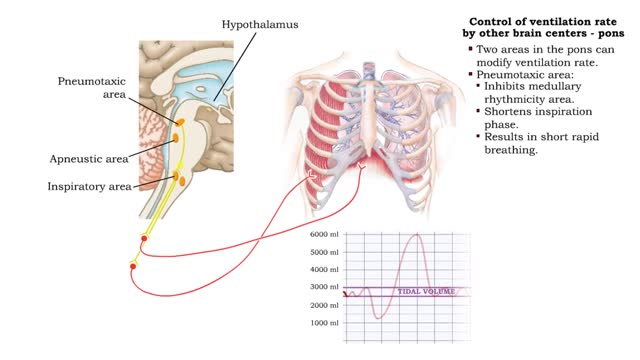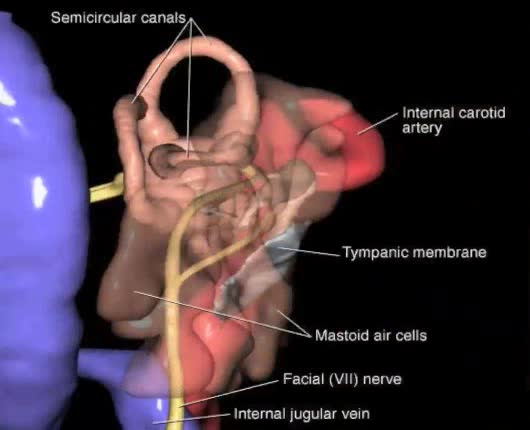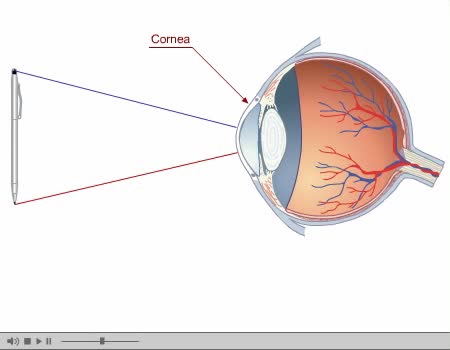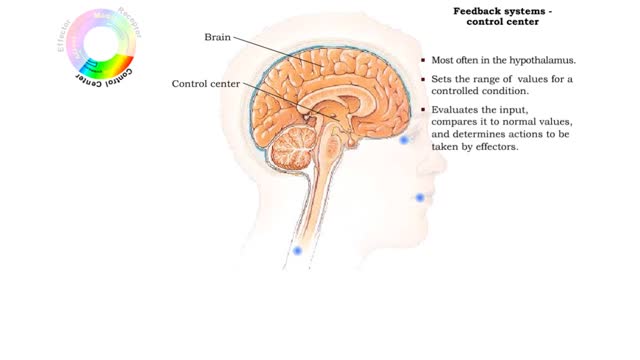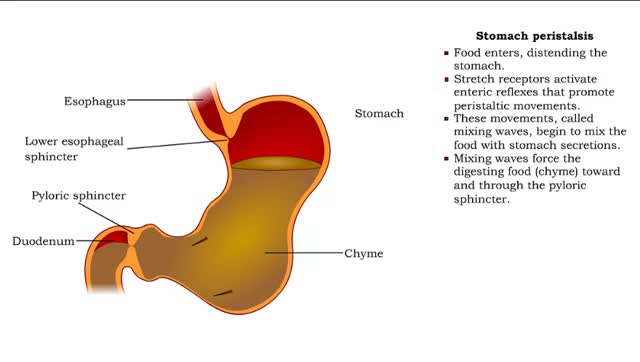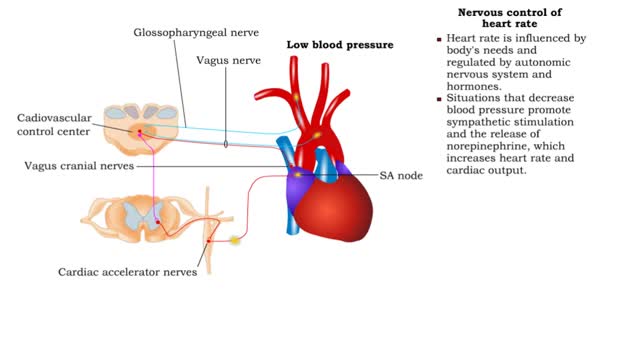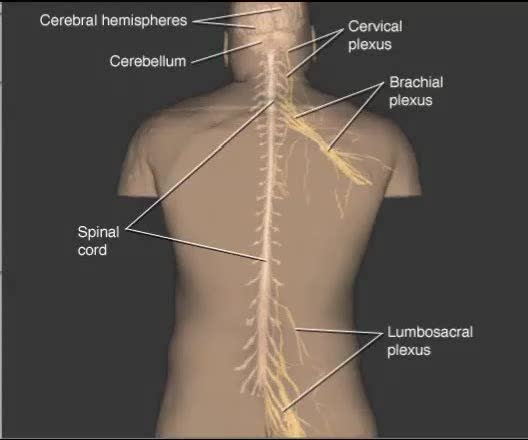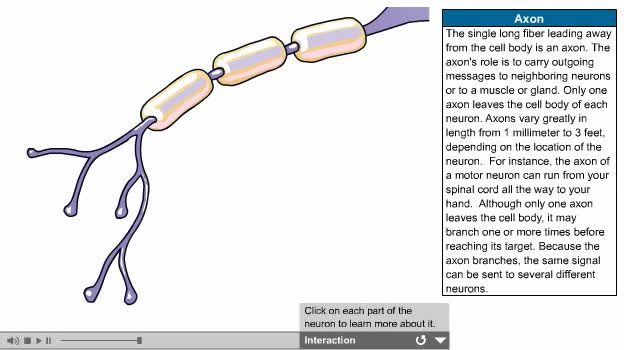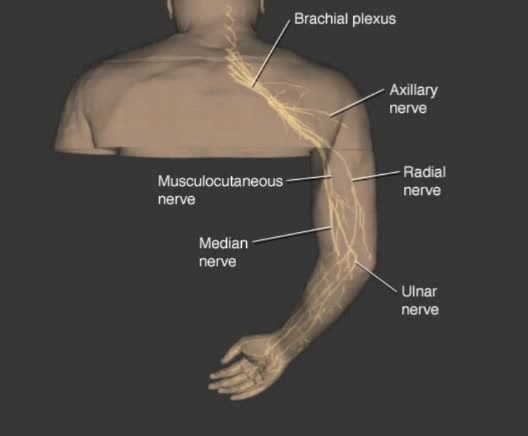Search Results
Results for: 'parasympathetic impulses'
Control of ventilation rate by other brain centers (posts, hypothalamus & cerebral cortex)
By: HWC, Views: 11256
Forced ventilation: • The inspiratory area stimulates accessory inspiratory muscles. • Inspiration is more forceful. • Inspiratory area activates expiratory area, which sends impulses to the expiratory muscles (internal intercostals and abdominal muscles). • Expiration muscles c...
By: Administrator, Views: 15892
The ear is generally described as having three distinct divisions, each with distinct functions: External ear Middle ear Inner ear The ear contains structures for both the sense of hearing and the sense of balance. Eighth cranial nerve: Also called the acoustic or auditory nerve. Carries...
Virtual Tour of the Eye Animation
By: Administrator, Views: 14068
Eye Composed of special anatomical structures that work together to facilitate sight: Cornea Pupil Lens Vitreous body Light stimulates sensory receptors (rods and cones) in the retina or innermost layer of the eye. Vision is made possible through the coordinated actions of nerves that co...
Component of feedback systems & Communication and regulation of body systems
By: HWC, Views: 11561
• Primary responsibility for communication and regulation in the body is shared by the nervous and endocrine systems. • The two systems work alone or together in specialized physiological processes called feedback systems to maintain homeostasis. • Feedback systems - or loops - are ...
Stomach peristalsis - Movement of Food Through the Small Intestine
By: HWC, Views: 11362
Peristalsis is a series of wave-like muscle contractions that moves food to different processing stations in the digestive tract. The process of peristalsis begins in the esophagus when a bolus of food is swallowed. The strong wave-like motions of the smooth muscle in the esophagus carry the food...
By: HWC, Views: 11489
• Heart rate is determined by the rate of depolarizations of the sinoatrial (SA) node. • Cardiac output is directly proportional to heart rate, the greater the heart rate the greater the cardiac output. • Changes in heart rate are associated with exercise, stress or injury. Nervous ...
Components of the Nervous System
By: Administrator, Views: 544
The nervous system is the part of an animal that coordinates its actions by transmitting signals to and from different parts of its body. The nervous system detects environmental changes that impact the body, then works in tandem with the endocrine system to respond to such events. Nervous tissue...
By: Administrator, Views: 14932
There are several types of neurons, three of which are: Motor neurons, Sensory neurons, Interneurons. The nervous system is usually described as having two interconnected divisions: the central nervous system (CNS) and the peripheral nervous system (PNS). CNS: Includes the brain and spinal...
By: Administrator, Views: 430
Used to describe neuronal processes conducting impulses from one location to another. Nerve fibers: - Nerve fibers of the PNS are wrapped by protective membranes called sheaths. - Myelinated fibers have an inner sheath of myelin, a thick fatty substance, and an outer sheath or neurilemma compo...
Advertisement



